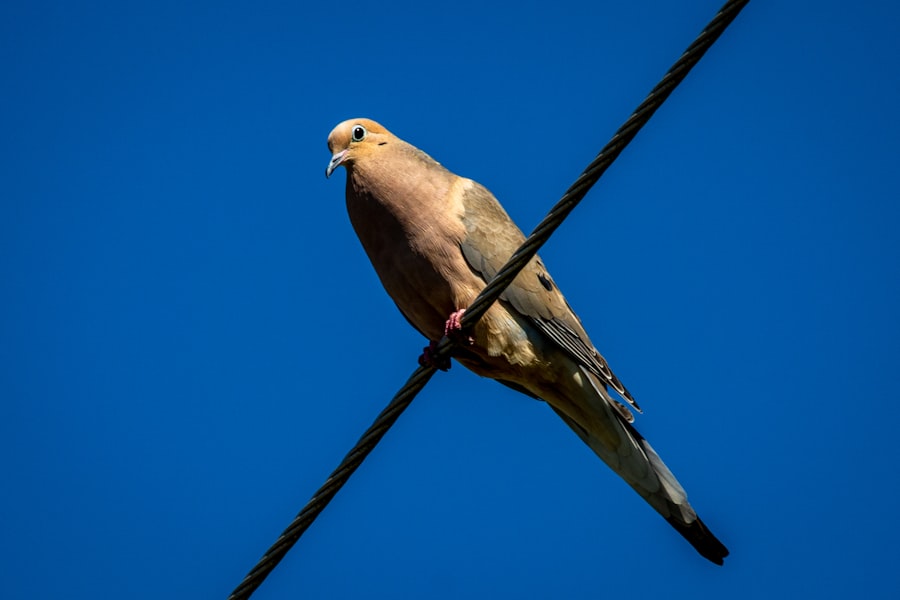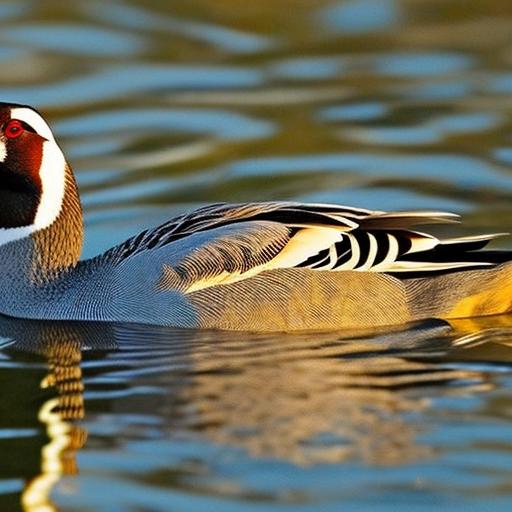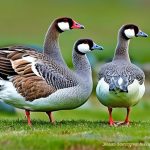When it comes to choosing the right breed of geese, there are several factors to consider. First and foremost, you’ll want to think about the purpose for which you are raising geese. Are you looking for geese for meat production, egg production, or simply as pets? Different breeds of geese are better suited for different purposes. For example, if you are looking for geese that are good for meat production, you might consider breeds such as the Toulouse or Embden geese, which are known for their large size and meaty carcasses. On the other hand, if you are interested in egg production, breeds like the Chinese or African geese might be more suitable, as they are known for their prolific egg-laying abilities.
Another important factor to consider when choosing a breed of geese is the climate in which you live. Some breeds of geese are better suited to cold climates, while others thrive in warmer environments. For example, breeds like the Pilgrim or Sebastopol geese are known for their cold-hardiness and are well-suited to colder climates, while breeds like the African or Chinese geese are better adapted to warmer climates. Additionally, you’ll want to consider the temperament of the breed. Some breeds of geese are known for being more docile and friendly, while others can be more aggressive and territorial. It’s important to choose a breed that matches your temperament and experience level as a goose owner.
Key Takeaways
- Consider the space available and your specific needs when choosing a breed of geese
- Provide a safe and comfortable living space with access to water for swimming and grazing
- Feed geese a balanced diet of grains, greens, and access to clean water
- Handle and socialize with geese regularly to build trust and reduce aggression
- Protect geese from predators with secure fencing and supervision, especially at night
Creating a Safe and Comfortable Living Space
Creating a safe and comfortable living space for your geese is essential for their health and well-being. When it comes to housing geese, there are a few key considerations to keep in mind. First and foremost, you’ll want to provide your geese with a secure shelter that protects them from the elements and predators. This shelter should be spacious enough to allow your geese to move around comfortably and should be well-ventilated to ensure good air circulation. Additionally, you’ll want to provide your geese with access to a clean and secure outdoor space where they can graze and exercise.
In terms of bedding, straw or wood shavings are commonly used as bedding material for geese. It’s important to regularly clean and replace the bedding to prevent the buildup of waste and bacteria. You’ll also want to provide your geese with access to fresh water for drinking and bathing. A shallow pond or kiddie pool can provide your geese with a place to bathe and cool off during hot weather. Finally, it’s important to provide your geese with access to nutritious feed that meets their dietary needs. This may include a combination of grains, greens, and commercial poultry feed. By providing your geese with a safe and comfortable living space, you can ensure that they thrive and remain healthy.
Feeding and Watering Geese
Feeding and watering geese is an important aspect of caring for these birds. Geese are herbivores and their diet should consist mainly of grass, grains, and greens. It’s important to provide your geese with access to fresh pasture where they can graze on grass and other vegetation. Additionally, you can supplement their diet with grains such as corn, wheat, and barley, as well as leafy greens like lettuce, kale, and spinach. Commercial poultry feed formulated specifically for geese can also be provided to ensure that they receive all the necessary nutrients.
In addition to providing a balanced diet, it’s important to ensure that your geese have access to clean and fresh water at all times. Geese need water not only for drinking but also for bathing and preening their feathers. A shallow pond or kiddie pool can provide your geese with a place to bathe and cool off during hot weather. It’s important to regularly clean and refill the water containers to prevent the buildup of algae and bacteria. By providing your geese with a nutritious diet and access to clean water, you can ensure that they remain healthy and happy.
Handling and Socializing with Geese
Handling and socializing with geese is an important aspect of caring for these birds. Geese are social animals that thrive on interaction with their human caretakers. When handling geese, it’s important to approach them calmly and confidently. Avoid making sudden movements or loud noises that could startle them. It’s also important to respect their personal space and avoid crowding or cornering them.
To socialize with your geese, spend time with them regularly and offer them treats such as grains or greens. This will help them associate you with positive experiences and build trust. You can also engage in gentle petting and grooming to bond with your geese. It’s important to establish yourself as the leader of the flock by setting boundaries and establishing consistent routines.
It’s important to note that while geese can be friendly and affectionate, they can also be territorial and protective of their space. It’s important to be mindful of their body language and respect their boundaries. By handling and socializing with your geese in a calm and respectful manner, you can build a strong bond with them and ensure that they feel safe and secure in your presence.
Providing Protection from Predators
Providing protection from predators is essential when raising geese. Geese are vulnerable to a variety of predators including foxes, raccoons, coyotes, and birds of prey. To protect your geese from predators, it’s important to secure their living space with sturdy fencing that is buried underground to prevent digging predators from gaining access. Additionally, you can install motion-activated lights or sound devices to deter nocturnal predators.
It’s also important to provide your geese with a secure shelter where they can seek refuge from predators. This shelter should have a solid roof and sturdy walls to protect them from aerial predators such as hawks or owls. You can also consider using guard animals such as dogs or llamas to help deter predators from approaching the flock.
In addition to physical barriers, it’s important to be vigilant and observant for signs of predator activity. Regularly inspect the perimeter of the living space for signs of digging or attempts at entry by predators. By providing protection from predators, you can ensure the safety and well-being of your geese.
Health and Veterinary Care for Geese

Maintaining the health of your geese is essential for their overall well-being. Regular health checks are important to monitor the condition of your geese and identify any potential health issues early on. It’s important to observe your geese regularly for signs of illness or injury such as lethargy, loss of appetite, or abnormal behavior.
In addition to regular health checks, it’s important to provide your geese with a clean living environment and access to nutritious food and clean water. This will help prevent common health issues such as respiratory infections or digestive problems. It’s also important to provide your geese with regular access to sunlight and fresh air to promote good health.
In the event that your geese do become ill or injured, it’s important to seek veterinary care from a qualified avian veterinarian. A veterinarian can provide a proper diagnosis and treatment plan for your geese. It’s important to establish a relationship with a veterinarian who has experience working with poultry or waterfowl.
Understanding and Managing Geese Behavior
Understanding and managing geese behavior is essential for successful goose keeping. Geese are social animals that thrive on interaction with their flock mates as well as their human caretakers. They have complex social structures within their flock and communicate through vocalizations, body language, and behavior.
It’s important to observe and understand the behavior of your geese in order to meet their needs and ensure their well-being. For example, understanding their body language can help you identify signs of stress or discomfort in your geese. Additionally, understanding their social dynamics can help you manage conflicts within the flock.
Managing geese behavior also involves providing them with mental stimulation and enrichment activities. This can include providing them with access to natural grazing areas, toys such as floating objects in water for play, or puzzles that dispense treats as a form of mental stimulation.
By understanding and managing geese behavior, you can create a harmonious environment for your flock and ensure that they thrive both physically and mentally.
In conclusion, raising geese requires careful consideration of their breed, housing needs, diet, socialization, protection from predators, health care, and behavior management. By taking these factors into account and providing proper care for your geese, you can ensure that they lead healthy, happy lives on your farm or homestead.
If you’re considering keeping geese in your backyard, you may also be interested in learning about the different types of chicken coops available. Check out this informative article on choosing the right chicken coop for your backyard. Understanding the options for housing poultry can provide valuable insights into creating a suitable environment for geese as well.
FAQs
What are the benefits of keeping geese in the backyard?
Geese can act as natural lawn mowers, keeping the grass trimmed and fertilized. They also provide pest control by eating insects and other small pests.
What do geese need in their backyard environment?
Geese need access to fresh water for drinking and bathing, as well as a sheltered area for protection from the elements. They also require a secure fence to keep them safe from predators.
What should be included in a geese’s diet?
Geese should have access to a balanced diet of grass, grains, and commercial waterfowl feed. They also benefit from occasional treats such as fruits and vegetables.
How do you keep geese healthy in a backyard setting?
Regular veterinary check-ups, proper nutrition, and a clean living environment are essential for keeping geese healthy. Providing opportunities for exercise and social interaction is also important.
Are there any legal considerations for keeping geese in a backyard?
It’s important to check local regulations and zoning laws before keeping geese in a backyard. Some areas may have restrictions on the number of geese allowed or specific requirements for their housing and care.
Meet Walter, the feathered-friend fanatic of Florida! Nestled in the sunshine state, Walter struts through life with his feathered companions, clucking his way to happiness. With a coop that’s fancier than a five-star hotel, he’s the Don Juan of the chicken world. When he’s not teaching his hens to do the cha-cha, you’ll find him in a heated debate with his prized rooster, Sir Clucks-a-Lot. Walter’s poultry passion is no yolk; he’s the sunny-side-up guy you never knew you needed in your flock of friends!







